Revenue Hub
Accelerate revenue execution
CPQ (Configure Price Quote)
Automate quotes & subscriptions
CLM (Contract Lifecycle Management)
Streamline contract signings
Billing
Manage revenue lifecycle
Subscriptions
Unlock recurring revenue

Generate professional proposals and price quotes in minutes with the easiest-to-use CPQ

DealHub’s Revenue Hub empowers leaders to connect their teams and processes, execute deals, and create predictable pipeline more effectively than ever before.
DealHub centralizes buyer communications from opportunity to renewal, and connects everything you need to close the deal.

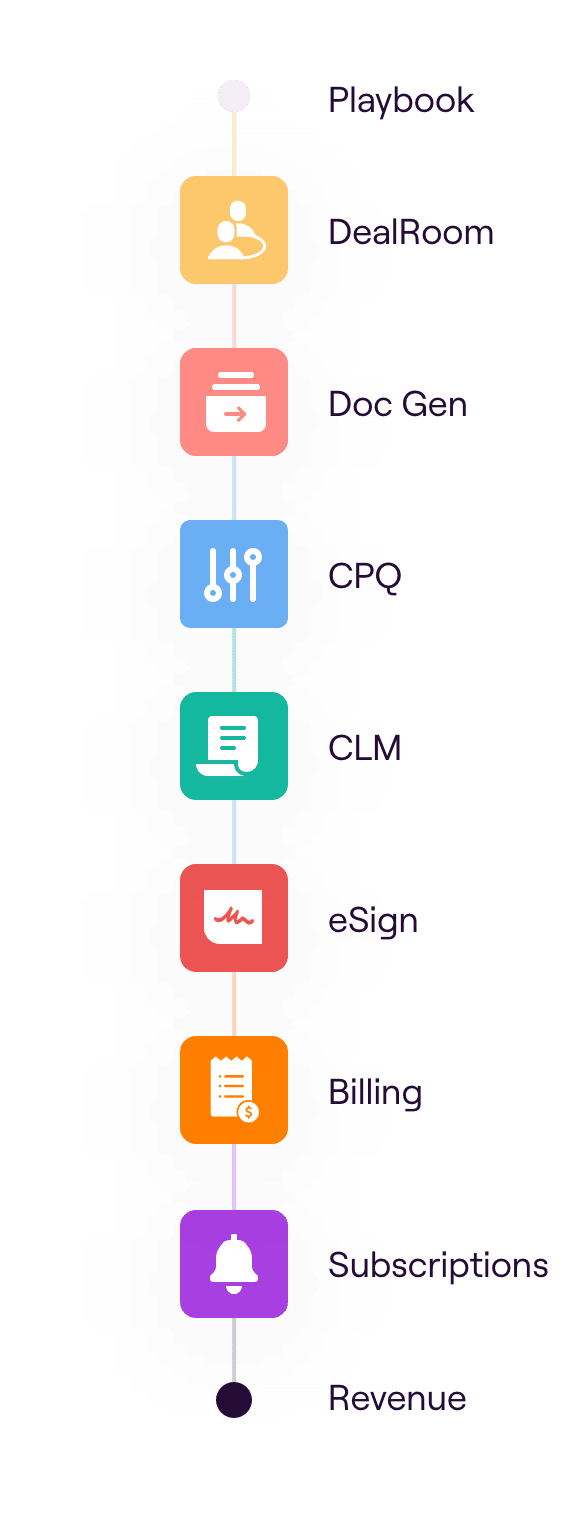
Deliver customized sales content, generate on-brand proposals, and automate quote generation and workflows.
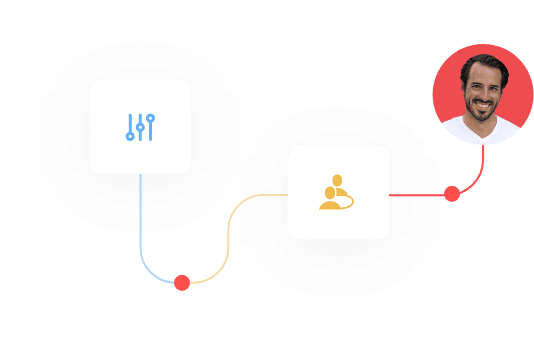

Everything a visionary revenue leader needs to complete the buying process – all in one virtual DealRoom.


Maximize revenue from your subscription contracts.
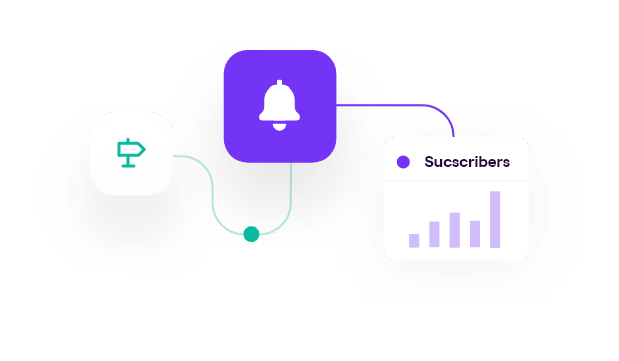

Everything you need to do empirically analyze processes and behaviors that lead to revenue achievement.
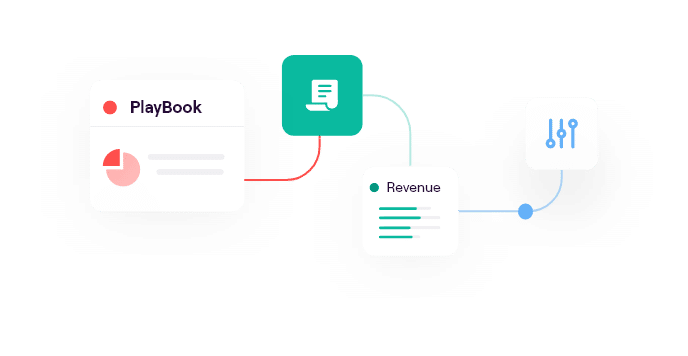

A unified platform greater than the sum of its parts. 360° revenue with a unified approach for both net new business and existing customers.
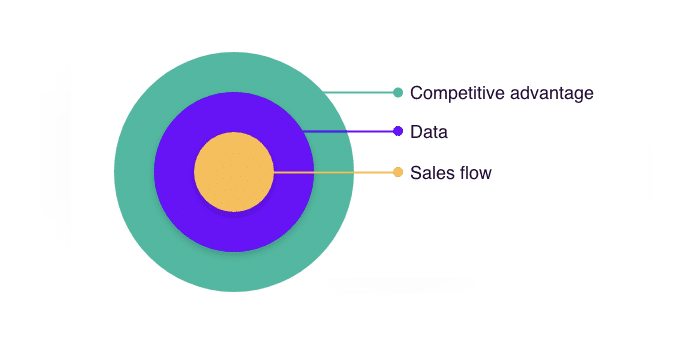
Achieve data hygiene, consolidate your tech stack, and eliminate disconnected views of revenue execution with a single, connected solution.
Empower sales teams with a platform built for the way they like to work. Shorten sales cycles by consolidating all sales stages into one connected revenue flow.
Build a unified process with quotes, proposals, contracts and documents standardized through DealHub’s guided selling playbook.

A revenue platform is a software platform for sales teams that supports the sales process from opportunity to close and all of the stages and details in between. What makes it unique and valuable is that all of the software you would normally use throughout the sales process are brought together into one sales workflow.
For example, your post-qualification proposal will go out in a DealRoom, or digital sales proposal. That DealRoom can be refreshed at the deck stage to include sales collateral, contract terms and conditions, statement of work, and whatever is most relevant to the proposal. The proposal can also include price quotation, product parts, margin discounts, as well as billing information, and e-signature.
When you bring everything together into one location, integrating all of the software that would normally be standing alone, you have everything you need to execute a deal and close. Working from a unified sales platform accelerates sales team responsiveness, reduces the sales cycle, increases close rates.
Sales Operations leaders typically struggle with both productivity and efficiency of their sales organization. A revenue platform enables sales teams to work with all of their sales technologies from within their CRM, as one workflow, rather than working with separate silo software solutions. Operating from one workflow increases sales team efficiency and productivity.
An example of the increased efficiency is that there are no separate logins for your contract management solution, your e-signature, and your sales proposal software. It’s all in one location, working from opportunity level within your CRM.
Your CRM is the focal point of your sales team’s daily habit. A revenue platform simply completes the workflow that they’ve already started within your CRM, connecting all of the separate software used to engage with buyers, create proposals and contracts, and close deals.
Sales Operations leaders should implement a revenue platform because, as you scale, the optimal way to improve the operational efficiency and productivity is to consolidate your sales technology. Replacing separate standalone solutions with a unified cooperative platform inherently increases efficiency and productivity.
Studies show that anywhere from 50% to 78% of buyers purchase from the vendor that responds to their inquiry first. Quick responsiveness to leads is so important that the odds of being the first to qualify a lead and progress them in the pipeline are 21 times higher when the lead response is five minutes as opposed to 30 minutes.
A revenue platform enables sales reps to leverage integrated technology for improved lead intelligence and personalized communication with prospects. Integrating all sales tools with the CRM and working from one source of truth enables sales reps to respond to leads faster, with greater depth of knowledge, and with personalized content that speaks to their needs and helps them make informed decisions.
Reducing the sales cycle requires saving time, increasing efficiency in your workflow, and responding quickly to buyers. A revenue platform reduces the burden of admin tasks and streamlines the sales process so sales reps have more time to focus on moving deals forward in the pipeline.
Once you have a revenue platform set up, the key benefit is that you can learn from the sales workflow and from the sales insight data that has been collected. The data helps Sales Operations leaders optimize sales workflows, improve upon sales processes, and guide your sales reps to an elevated standard of execution.
B2B customers are more than halfway through their decision-making process before engaging with a sales rep. They have already done their due diligence and they’re ready to purchase. Yet, sales reps respond as if the customer is still at the beginning stages of their buying journey.
Businesses need to respond to buyers where they are in their journey, and fast. 50% of buyers choose the vendor that responds first. As mentioned above, when your sales team works from an integrated Revenue Platform, they can respond quickly to buyers. Their CRM, sales collateral, quote generation capabilities, and sales proposal software are all connected so generating personalized sales proposals and contracts is fast and easy.
Sales reps’ level of execution also impacts close rates. A sales rep may spend 15 minutes putting together a proposal for one prospect, and then an hour putting together a proposal for a different prospect. Typically the close rate will be higher where you’ve put your time and your effort.
Using a Revenue Platform standardizes best practices across all opportunities, which has a clear impact on close rates.
Buyers benefit from using a revenue platform in several ways: a better buyer experience, receiving personalized content and proposals, and one centralized location for the deal workflow.
Essentially, it helps the buyer make an informed decision. The user experience is more intuitive. With all deal assets in one location, it’s easier to access the information buyers need to make a purchasing decision, and it’s easier to share with other stakeholders.
Buyers also appreciate how quickly sales reps can respond to their needs when using a revenue platform. Sales teams have quick access to high-quality lead information from their CRM integrated with technology to send out personalized communication with minimal touches. A unified revenue platform gives the buyer the correct, relevant information fast.
The added advantage of a revenue platform is in its ability to integrate engaging personalized content into the sales proposal. Visual assets, such as videos and case studies, communicate a compelling story that drives the buyer to take action.
Buyers have one centralized location in which their deal is presented. With everything they need in one location, they have one cohesive proposal they can use to compare with proposals from other vendors.
They’re also able to share the proposal with their stakeholder team within the company in one easily shareable link, or DealRoom micro website. All stakeholders have access to the same source of truth, a DealRoom that consolidates all collaboration between the sales rep and the buyer into one story.
A revenue platform includes multiple tools which automate the sales proposal, contract generation, approval, and signature workflow. The benefit to the sales team is in the guided selling process. Content assets are mapped into the relevant qualification questions. When you’re being guided through the process, you already have the prompts and cues to help present the relevant content to the buyer.
For example, if the opportunity that you’re servicing is in the manufacturing industry, once you’ve answered that qualification question in the guided selling process, then all of the relevant content and case studies relevant to that industry will be shortlisted for you. Rather than sifting through hundreds of assets, sales reps are given a list of relevant content which is a huge time saver.
A revenue platform is an extension of an account-based marketing solution. It’s an account-based selling solution which allows you to answer qualification questions and become more specific and accurate in the content and resources that you share with the buyer.
A revenue platform is integrated within the CRM. There is a single sign-on with the CRM so sales reps are working from one sales proposal software stack comprised of the following tools:
Sales Playbook and Guided Selling Workflow
Configure-Price-Quote (CPQ)
Content Sharing and Management
Contract Management
Document Generation
e-Signature
Subscription Management
Engagement Tracking and Insights
Sales teams need unified data insights from which to make decisions about their prospects. Sales Operations leaders need accurate data from which to forecast opportunities in the pipeline and optimize the sales process.
A unified Revenue Platform ties all sales activities together and eliminates the gaps in data that result from using stand-alone tools. You can track the buyer journey because all systems within the platform speak to each other.
Part of the data insights come from the activity stream. The salesperson receives an alert every time someone is engaged with one of the DealRooms that they have shared with a potential buyer. They will know how many times they’ve opened a DealRoom, and who they shared it with on their team.
The importance of the activity stream is that sales teams work from accurate information about engagement on their deals and how they are progressing, rather than gut feelings. It enables salespeople to reach out to prospects with certainty and to add value with each conversation, rather than just to see if they’ve received something.
Data insights also come from other buyer engagement signals. For example, when viewing analytics on a DealRoom, you can see the scroll depth and heat map. You can measure how much time a buyer spent on various parts of the DealRoom, such as the content assets or the contract. By knowing how much time was spent at particular parts of the buyer’s journey you can optimize those touchpoints. You’ll be able to determine where the friction points are, what needs to be improved, and which parts of the platform have the greatest impact on buyer experience.
There is a wide spectrum of sales proposal software on the market today. On the light end you have sales proposal software which are essentially a container for all of the class rules and tools that you might want to include when you send out a proposal. Most of them are built for simple use cases and smaller customers. On the other end are heavy, legacy systems which are difficult to configure and take months to implement.
DealHub’s Revenue Hub is different. It has a full stack of robust tools, yet it’s easy to use and easy to configure.
The majority of sales proposal solutions are used for one function and require add-ons to complete an organization’s full sales proposal needs. For example, you would need to add on software for CPQ and Contract Management. Every time you’re adding additional external software into your sales proposal platform, you then have a blind spot in the data reflecting the buyer engagement at each stage.
So, the advantages of DealHub’s unified Revenue Hub are twofold.
1. There are no blind spots in your data story. You have one journey with 100% visibility.
2. Cost savings are significant when you consolidate your sales stack and purchase one tool that does it all. When you’re adding all of these additional software on top of your proposal platform, the total cost of ownership becomes much more than the initial outlay.
When purchasing one solution, there is one price, one cohesive journey, and one workflow for your sales team, which is by far a more cost-effective, productive, and scalable way to implement a software solution.
DealHub’s unified Revenue Hub provides additional value in its visualization, user interface, and streamlined functionality. Within the Hub is our DealRoom, a sales proposal micro-website which brings all the functionality of the sales proposal software together into one streamlined experience for the buyer.
As opposed to heavy legacy systems which require months to implement, DealHub is easy to use and requires no coding. The DealRoom could be up within a couple of days and the CPQ would be fully implemented in less than a month.